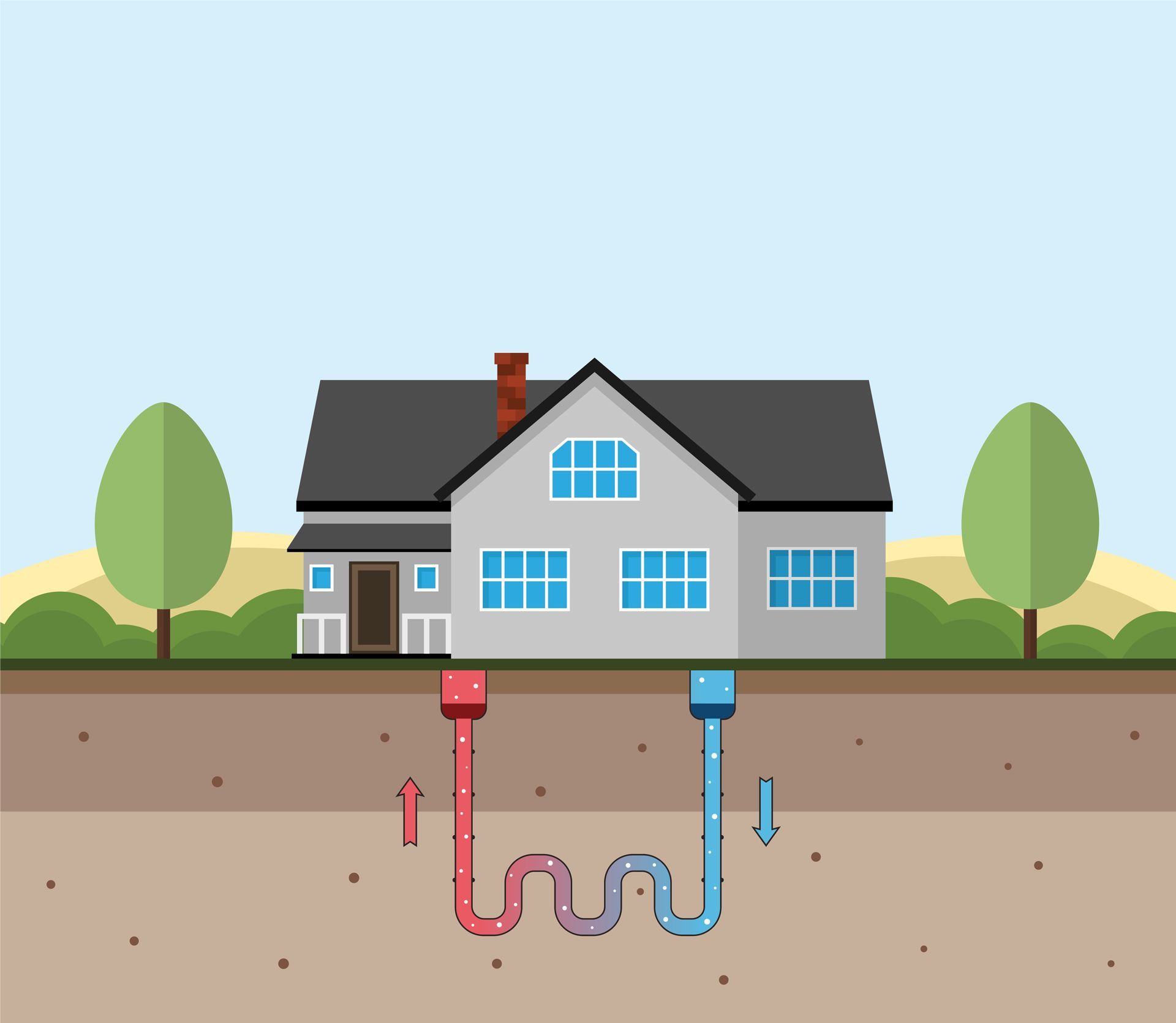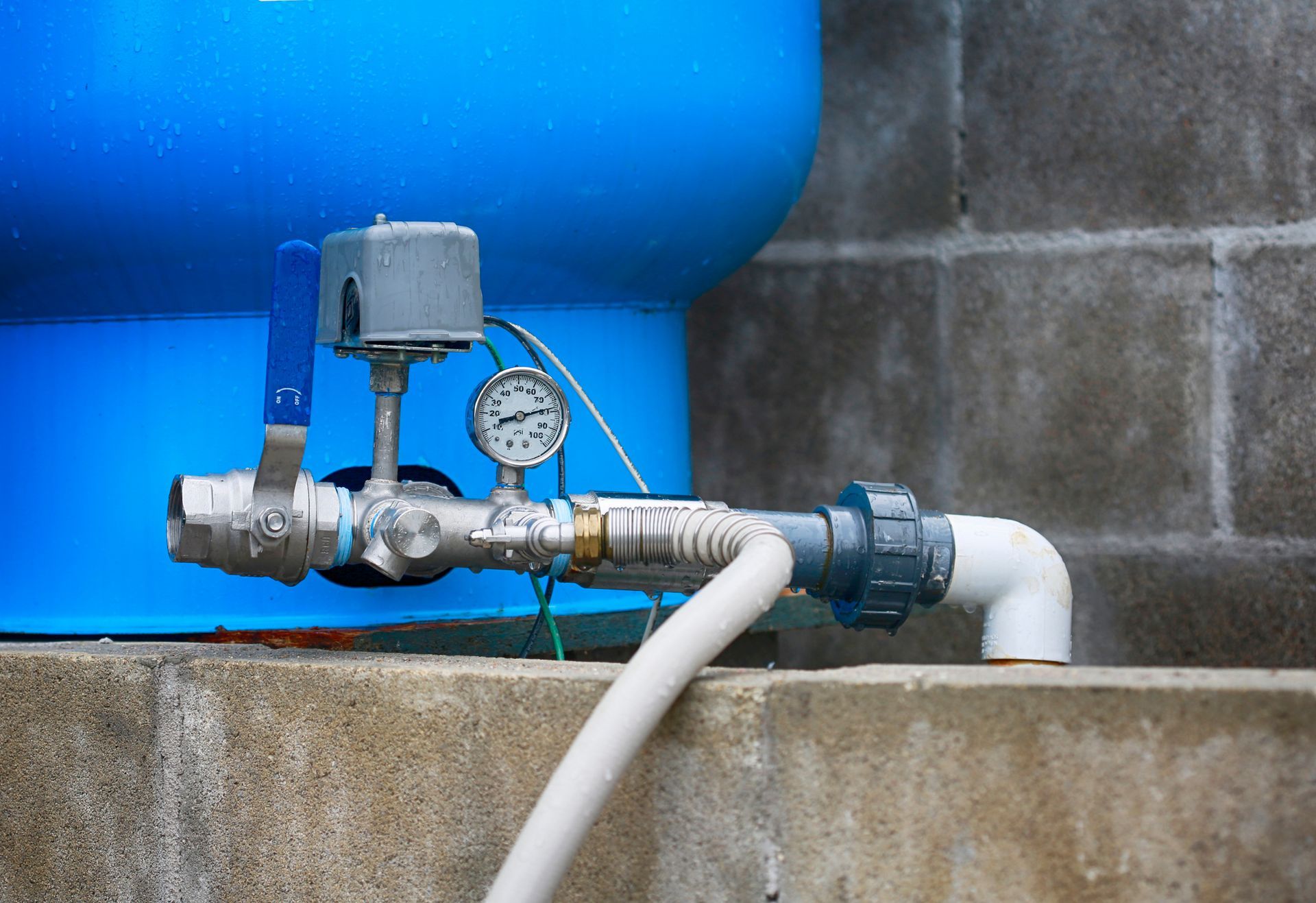Why You Should Consider Geothermal for Your Home
In the ever-evolving world of residential heating and cooling solutions, geothermal energy has emerged as a revolutionary option for homeowners. In this comprehensive guide, we will not only explore the various aspects of geothermal systems but also provide you with valuable insights into why you should seriously consider adopting geothermal for your home. As we delve into the intricacies of this sustainable energy source, you'll discover that geothermal isn't just an alternative; it's a smart choice for a greener and more cost-effective future.
What Is Geothermal Heating and Cooling?
Geothermal heating and cooling systems are a marvel of energy-efficient technology that harness the Earth's natural heat to regulate indoor temperatures. Imagine having a home that stays comfortably warm in the winter and refreshingly cool in the summer without relying on fossil fuels or conventional heating and cooling systems. Geothermal systems achieve this by circulating a water-based solution through underground pipes, tapping into the Earth's constant thermal energy.
Geothermal systems are based on a simple principle: the ground beneath our feet maintains a stable temperature year-round, which varies little even in the face of extreme weather conditions. This inherent consistency makes it an ideal source for heating and cooling residential properties.
Advantages of Geothermal Systems
Choosing a geothermal system for your home offers a plethora of advantages that go beyond just comfortable temperatures. Here are some compelling reasons why geothermal systems make sense for homeowners:
1. Unparalleled Energy Efficiency
Geothermal systems are remarkably energy-efficient. Unlike traditional heating and cooling systems that consume substantial electricity or gas, geothermal systems utilize a fraction of the energy to achieve the same level of comfort. This translates to significantly lower utility bills over the long term, ultimately saving you money.
2. Extended Lifespan
Investing in a geothermal system is an investment in longevity. These systems typically have a much longer lifespan compared to traditional HVAC systems. With proper maintenance, a geothermal system can serve your home efficiently for decades, reducing the need for frequent replacements and costly repairs.
3. Eco-Friendly Solution
For environmentally conscious homeowners, geothermal systems are a dream come true. They produce substantially fewer greenhouse gas emissions compared to traditional heating and cooling systems, which rely heavily on fossil fuels. By opting for geothermal, you're actively contributing to a cleaner planet and helping combat climate change.
Geothermal vs. Traditional HVAC
While geothermal systems boast numerous advantages, it's natural to wonder how they compare to traditional HVAC systems in terms of cost-effectiveness. Let's break down the cost-efficiency of geothermal in comparison to traditional options.
The Upfront Cost
One of the common hesitations when considering geothermal is the higher upfront installation cost. Geothermal systems involve drilling, underground piping, and specialized equipment, making the initial investment slightly more substantial than traditional HVAC systems. However, this upfront cost difference can often be offset by incentives, tax credits, and long-term savings.
Long-Term Savings
The true appeal of geothermal lies in its long-term savings potential. While traditional HVAC systems rely on constantly purchasing and consuming energy, geothermal systems utilize the Earth's natural heat, resulting in significantly lower operational costs over time. Homeowners typically experience a payback period within 5 to 10 years, after which they continue to enjoy substantial savings on their utility bills.
Environmental Benefits of Geothermal
Beyond the financial advantages, geothermal systems offer remarkable environmental benefits, making them a responsible choice for homeowners who want to reduce their carbon footprint and contribute to a cleaner planet.
Reduced Emissions
Geothermal systems produce minimal emissions during operation. They rely on electricity to power the heat pump, and this electricity can be sourced from renewable energy providers, further reducing the carbon footprint. By transitioning to geothermal, you can significantly decrease your home's contribution to air pollution.
Lower Fossil Fuel Dependence
Traditional heating and cooling systems rely heavily on fossil fuels, which are finite resources. By adopting geothermal, you reduce your dependence on these limited and environmentally damaging energy sources. This transition helps secure a more sustainable energy future for your home and the planet.
Installing a Geothermal System
Explanation: The process of installing a geothermal system may seem complex, but it's essential to understand the key steps involved. While professional installation is recommended due to the specialized equipment and expertise required, knowing the process can help homeowners make informed decisions.
1. Site Assessment
The first step in installing a geothermal system is a thorough site assessment. A geothermal professional will evaluate your property to determine its suitability for a geothermal system. Factors such as soil type, land availability, and geological conditions play a crucial role in this assessment.
2. Drilling
The next phase involves drilling boreholes or trenches in your property. These holes will house the ground loops through which the heat exchange with the Earth occurs. The depth and number of holes depend on factors like your climate, soil conditions, and heating and cooling needs.
3. Heat Pump Installation
Once the ground loops are in place, the heat pump is installed inside your home. This pump circulates the water-based solution through the ground loops, extracting heat from the Earth for heating or dissipating heat into the Earth for cooling.
4. System Setup
The final step includes setting up the geothermal system for your specific heating and cooling needs. The heat pump is connected to your home's ductwork, and the system is configured to provide optimal comfort and energy efficiency.
Maximizing Energy Efficiency
While geothermal systems are inherently energy-efficient, homeowners can take additional steps to maximize their performance and further reduce energy consumption and utility costs.
Routine maintenance is essential to keep your geothermal system operating efficiently. This includes checking and cleaning filters, inspecting heat exchange components, and ensuring proper fluid levels. Regular professional maintenance visits can identify and address any issues early, ensuring your geothermal system continues to provide efficient, reliable, and eco-friendly heating and cooling for your home.
In conclusion, the adoption of geothermal heating and cooling systems for your home is not just a choice; it's a commitment to a more sustainable, cost-effective, and eco-friendly future. By tapping into the Earth's consistent thermal energy, geothermal systems provide unmatched energy efficiency, extended lifespan, and substantial long-term savings. Moreover, they significantly reduce greenhouse gas emissions, contributing to a cleaner planet and a healthier environment for future generations. While the initial installation cost may be higher, the payback period is relatively short, and the enduring benefits make it a wise investment. By choosing geothermal, you not only enhance your home's comfort but also play a pivotal role in building a greener world. So, if you're considering the next step in home improvement, think geothermal—your home, your wallet, and the planet will thank you.
For more information on
geothermal systems for your home, contact us today.


